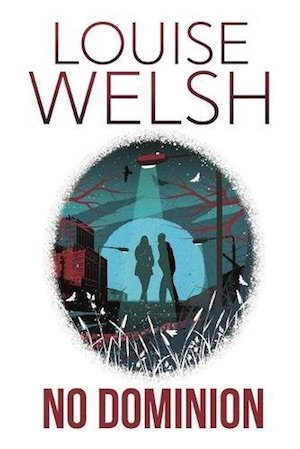
In the first installment, A Lovely Way to Burn, we met Stevie Flint, who investigates the suspicious death of her boyfriend in London when ‘the sweats’ a viral flu that wipes out most of the world’s population, is just taking hold. In part two, Death is a Welcome Guest, Magnus McFall, a comic on the brink of success flees London to head home to Orkney, hoping that the sickness has not reached his family.
Seven years later, No Dominion unites these two survivors, who are now part of a community in Orkney. Like the rest of the world, Orkney’s population has been decimated, but Stevie at the helm is attempting to rebuild a democratic civilisation through the New Orcadian Council, which brings a challenger to her presidency, Bjarne. Magnus is a crofter attempting to tame the land in the old way, who lives with his adopted son Shuggie, one of many orphans who lost their parents in the pandemic.
When three strangers arrive the fragile community is upset further and days later they disappear taking Shuggie, his girlfriend Willow, three other teenagers and a baby with them. The angry teens went willingly, lured by the false promise of the bright lights of a still connected Glasgow, a city where they believe the contagion and its legacy is ancient history. They are angry with the adults for the loss of the scientific wonders of the past.
Meanwhile, Willow’s adopted parents Bjarne and Candice are murdered on their farm.
But with no time to lose, Stevie and Magnus head to the mainland to find the missing teens in a quest motivated by love for their lost young people. What they also find is the loss of the dear places they once knew as they pass through lawless territory in the Highlands populated by clans, including a debauched laird with a child bride, ruling his fiefdom from an ancient castle, a throwback to the clans of medieval Scotland. There are guerilla gangs of fierce teenage girls, rapist bandits, paedophiles are rife and unchallenged, psychopaths at every turn and lynch mobs driven by religious fanatics.
In decaying Glasgow, the leader Bream (surely a play on Salmond and Sturgeon) is offering children a life of sorts; subsistence living in return for backbreaking work in a brutal Stalinist mode. Child abuse is accepted and young people are a commodity, like petrol. Babies are highly prized by couples who lost their offspring to the plague.
Our brave but flawed survivors, Stevie and Magnus, kill out of defence, revenge and to find their loved ones. They don’t always make the best decisions, Stevie is driven to hold a loaded gun to a baby’s head to get information, an act she is ashamed of later on. There’s violence a plenty, even Stevie’s dog is called Pistol, but in Welsh’s deft hands we are emotionally invested and immersed, hoping against hope that Magnus and Stevie will take their loved ones home. And if so, that they can build a better future for their community.
There are parallels with today’s situation in this post-pandemic world, with the return of Scotland’s clan culture equated with today’s nationalism. We see a human urge to look back to where we came from and somehow get back to a place as people imagine it used to be.
The idea of the end of the world has always been with us through history, in every civilisation. In No Domnion, there is hope that a place could be washed clean for a new beginning and regenerated for humanity.
For her contemporary pandemic story Louise Welsh investigated how the world was after the Black Death, a time that has inspired other authors. She was also influenced by growing up dramas based on nuclear annihilation, like Threads as well as horror.
John Murray
Print/Kindle/iBook
£14.98
CFL Rating: 5 Stars